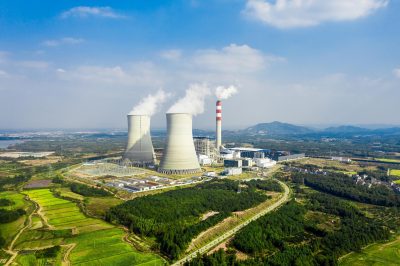
Vodík ako energetická revolúcia
v priemysle a doprave
Vodíkové hospodárstvo predstavuje prelomový prístup v oblasti udržateľnej energie, kde je vodík používaný ako čistý, flexibilný a efektívny energetický nosič. Táto technológia prináša nádej na zníženie závislosti od fosílnych palív, ponúka alternatívu pre ukladanie prebytočnej energie z obnoviteľných zdrojov a môže zohrávať kľúčovú úlohu v dekarbonizácii rôznych sektorov, od dopravy po priemysel.
V súčasnosti prebieha realizácia výstavby JESS projektu „Vodíkové hospodárstva“ v lokalite EMPARK Trnava ako pilotný projekt výroby vodíka prostredníctvom PEM elektrolyzéru o výkone 1 MW ktorého cieľom je výroba zeleného vodíka najvyššej kvality, určená pre vozidlá hromadnej, prímestskej a nákladnej dopravy ako nástroj na zlepšenie životného prostredia na Slovensku, znižovaním zaťaženia emisnej stopy v doprave.
Ročný objem výroby projektu v druhej etape je až 160 ton vodíka ročne. Uvedené množstvo vodíka, pri využití v prímestskej a mestskej autobusovej hromadnej doprave, dokáže zabezpečiť dopravné výkony v rozsahu až 1,3 miliónov kilometrov ročne čo predstavuje ročný nájazd až 20 autobusov.
Pilotné nasadenie vodíkovej technológie v SR s cieľom prispieť k nastaveniu pravidiel povoľovania a umiestňovania daných technológií v zastavaných oblastiach. Vybudovať základnú kostru infraštruktúry Slovenska, potrebnej pre výrobu a distribúciu vodíka, vyrobeného primárne z vlastných obnoviteľných zdrojov elektriny (OZE).
Budovanie know-how v podmienkach SR k efektívnej výrobe, uskladneniu a následnej distribúcie zeleného vodíka. Projekt v jeho konečnej podobe a rozsahu, predpokladá ročnú úsporu až 1.000 ton CO2.

Kľúčové výhody vodíkového hospodárstva
pre udržateľnú budúcnosť
Redukcia emisií skleníkových plynov
Vodíkové hospodárstvo poskytuje spôsob, ako výrazne znížiť emisie skleníkových plynov, najmä ak je vodík vyrábaný z obnoviteľných zdrojov energie. Využitie vodíka ako paliva v doprave a priemysle môže nahradiť fosílne palivá a výrazne znížiť emisie uhlíka.
Diverzifikácia energetického mixu
Vodíkové hospodárstvo umožňuje diverzifikáciu energetického mixu. Vodík môže byť použitý ako ukladací prostriedok pre prebytočnú energiu z obnoviteľných zdrojov, čím sa zvyšuje ich efektívnosť a spoľahlivosť. Toto pomáha vyrovnávať nepravidelnosti v dodávkach energie z obnoviteľných zdrojov, ako sú slnko a vietor.
Podpora udržateľnej dopravy
Vodíkové palivové články ponúkajú sľubnú alternatívu pre vozidlá poháňané fosílnymi palivami. Vodíkové vozidlá produkujú nulové emisie, pričom jediným vedľajším produktom ich činnosti je voda. Toto môže mať zásadný dopad na zníženie znečistenia ovzdušia v mestách a na zlepšenie kvality ovzdušia.
Podpora udržateľného priemyslu
Vodíkové hospodárstvo môže mať tiež pozitívny dopad na priemyselnú výrobu, poskytujúc čisté palivo pre procesy, ktoré tradične závisia od fosílnych palív. To môže zahŕňať výrobu ocele a cementu, ako aj iné priemyselné procesy, ktoré sú významnými zdrojmi emisií uhlíka. Využitie vodíka v týchto procesoch môže výrazne prispieť k dekarbonizácii priemyslu.
5 dôvodov, ako vodíkové hospodárstvo
napomáha tvorbe udržateľnej
energetickej budúcnosti
Riešenie pre nízkoemisnú energetiku
Podpora obnoviteľných zdrojov energie
Krok k čistejšej mobilite
Inovácie a technologický pokrok
Vplyv na dekarbonizáciu
Ako funguje
vodíkové hospodárstvo?
Vodíkové hospodárstvo predstavuje systém, v ktorom sa vodík používa ako kľúčový energetický nosič pre rôzne aplikácie, vrátane dopravy, priemyslu a vykurovania. Vodík môže byť vyrobený rôznymi spôsobmi, najčastejšie elektrolýzou – procesom, kde sa elektrický prúd používa na rozdelenie molekúl vody na vodík a kyslík.

Vodík sa potom môže skladovať a transportovať, buď v plynnom alebo kvapalnom stave, na miesta, kde sa používa ako zdroj energie. V doprave sa vodík používa v palivových článkoch, kde reaguje s kyslíkom zo vzduchu a vytvára elektrickú energiu pre pohon vozidiel. Tento proces generuje len vodu ako vedľajší produkt, čím prispieva k zníženiu emisií v dopravných prostriedkoch.
V priemyselnom sektore môže byť vodík využitý ako čistý zdroj tepla alebo ako surovina pre chemické procesy. Výhody vodíkového hospodárstva spočívajú v jeho flexibilite, možnosti zníženia závislosti od fosílnych palív a príspevku k dosiahnutiu cieľov v oblasti zmeny klímy.
Kontaktujte nás pre informácie o vodíkovej energii
Chcete sa dozvedieť viac o tom, ako vodíkové hospodárstvo prispieva k udržateľnej energetickej budúcnosti?
Naši experti sú pripravení poskytnúť vám informácie a poradenstvo týkajúce sa využitia vodíka ako čistej a efektívnej alternatívy k tradičným energetickým zdrojom.
Vodíkové technológie ponúkajú inovatívne riešenia pre súčasné aj budúce energetické výzvy. Kontaktujte nás a získajte podrobnejšie informácie o tom, ako môže byť vodík súčasťou vašej cesty k udržateľnejšiemu a čistejšiemu energetickému riešeniu.

